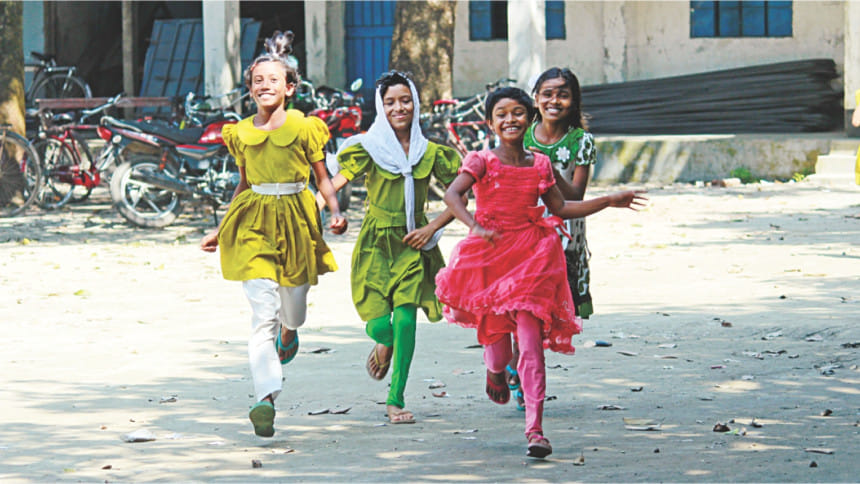Campus Hero Café: Eliminating Stigma towards Sexual and Reproductive Health

We know about reproductive health from our physical education textbook that contains a couple of chapters about it. However, our teachers advise us to read it on our own at home and these chapters are never taught in the classroom,” says Abdur Rahman, a student of class ten studying in a prominent school of Rangpur district. Learning about sexuality and reproductive health is often considered taboo in Bangladesh's conservative society.
However, in this era of internet, this taboo cannot prevent young men and women from learning about sexuality in the wrong way from undesired sources. “We don't have internet connection in our house but we can browse the internet in the cyber cafes at the cost of only 20 tk per hour,” says Md Shujon a friend of Abdur Rahman. And, due to accessibility to the red light areas of World Wide Web, these inquisitive adolescents are susceptible to acquire dangerous misconception about opposite gender and sexuality which can gravely affect their sound psychological and social development.
An initiative called Campus Hero Café has been promoting solutions to this serious problem. This initiative has been running in four districts of Bangladesh to reach these young adolescents with the correct concepts of sexual and reproductive health rights to make these youngsters conscious and respectful about the rights of the women and girls. Dr Sayed Saikh Imtiaz's organisation, Centre for Men and Masculinities Studies (CMMS) has been implementing this important initiative at schools, colleges and universities in Dhaka, Pabna, Cox's Bazaar and Rangpur. Dhaka University's Department of Women and Gender Studies and Promunda US and Netherlands Organisation for Scientific Research (NWO) are also supporting this effort. This change making initiative was inaugurated on 4th December by a conference of the researchers and activists chaired by Professor Nasreen Ahmad, Pro-Vice-Chancellor, University of Dhaka where Mohammad Nasim, MP, Minister of health and family welfare was the chief guest.

After conducting thorough introductory surveys and assessments, the activists and experts of CMMS established counselling centres called Campus Hero Cafés in different educational institutions of those districts where young men and women can freely share their experiences and problems regarding sexual and reproductive health. The experts solve their problems by providing effective psychosocial counselling in a very friendly manner. Also, on-campus counselling services, with selected students from different institutions, the cafes also organise a wide range of social activities to make other students and the community conscious about sexual and reproductive health rights of men and women.
“Our experts at the cafes are already overwhelmed with a lot of curious questions from the adolescents. They are asking about the problems they have been encountering, they are asking about their rights and responsibilities and they have been asking for suggestions regarding what they should do and what they should not do in this vulnerable period of life”, says Afsana Begum, programme officer of CMMS working for this initiative.
To reach these students 24/7, a mobile app called “Challenger Mamu” has been launched where anyone can ask their queries regarding sexual and reproductive health rights and get instant answers from the experts through live chat and by dialling the hotline number. Also, the app presents a lot of resourceful contents for the young men and women to reduce misconception and superstitions on this taboo issue.
“This initiative is aimed at finding out the correlation between violence against women and the existing practices of masculinity prevalent among young men in Bangladesh. Because, in our society, men are perceived as the perpetrators of committing violence against women, whereas, men can also be the instrument to prevent gender discrimination in our society,” says Dr Sayed Saikh Imtiaz, Executive Director of CMMS and chairperson of Dhaka University's Department of Women and Gender Studies. “By teaching young men and women about sexual and reproductive health rights through a wide range of activities, my goal is to develop a young generation who will be sensitive and respectful about women's and girl's rights,” he adds.
In recent years, the increasing violence against women and girls in Bangladesh have magnetised the attention of the civil society. Education based pragmatic initiatives can contribute effectively to solve this crucial social problem.

 For all latest news, follow The Daily Star's Google News channel.
For all latest news, follow The Daily Star's Google News channel. 




Comments